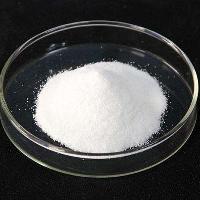-
Categories
-
Pharmaceutical Intermediates
-
Active Pharmaceutical Ingredients
-
Food Additives
- Industrial Coatings
- Agrochemicals
- Dyes and Pigments
- Surfactant
- Flavors and Fragrances
- Chemical Reagents
- Catalyst and Auxiliary
- Natural Products
- Inorganic Chemistry
-
Organic Chemistry
-
Biochemical Engineering
- Analytical Chemistry
- Cosmetic Ingredient
-
Pharmaceutical Intermediates
Promotion
ECHEMI Mall
Wholesale
Weekly Price
Exhibition
News
-
Trade Service
Alzheimer's disease (AD) is the most common neurodegenerative disease and is closely related to diabetes (DM)
.
The gradual loss of β-cell function and quality in diabetic patients may be caused by the toxic accumulation of amylin or amyloid, which is closely related to the defects of proteasome and autophagy
diabetes
Dipeptidyl peptidase-4 inhibitor (DPP-4i) is a widely used hypoglycemic agent and is associated with a low risk of hypoglycemia and weight gain
.
DPP-4i increases its bioavailability by inhibiting the degradation of active glucagon-like peptide-1 (GLP-1), thereby improving glucose metabolism
Hypoglycemia
However, previous clinical studies have great limitations because they recruited patients without imaging biomarkers or neuropathologically confirmed AD
.
Positron emission tomography (PET) using ligands that bind to Aβ is a valuable technique for visualizing and quantifying the deposition of Aβ in the whole brain of living patients, and has a very high sensitivity for detecting AD pathology
In this way, Seong Ho Jeong and others from the Korea University School of Medicine used DPP-4i to treat AD-related cognitive impairment (ADCI) patients to explore whether DPP-4i has a protective effect on Aβ retention
.
They compared the normalized uptake ratios (SUVRs) of the cerebral cortex calculated using 18F-florbetaben (18F-FBB) Aβ PET
.
They reviewed 282 ADCI patients, whose 18F-florbetaben amyloid PET scan was positive, and divided them into three groups based on previously diagnosed diabetes and DPP-4i usage: in use (ADCI-DPP-4i+, n= 70) Diabetic and non-diabetic patients (n=141) who do not use DPP-4i (ADCI-DPP-4i-, n=71)
.
Multiple linear regression analysis was performed using the SUVR calculated from the cortical region to determine the difference between the groups in global and regional amyloid retention
.
Finally, a linear mixed model was used to evaluate the longitudinal change of the Mini Mental State Examination (MMSE) score
After adjusting for age, gender, education, cognitive status, and APOE ε4 carrier status, the whole brain amyloid burden of ADCI-DPP-4i+ group was lower than ADCI-DPP-4i- group (β = 0.
075, SE = 0.
024 , p = 0.
002) and non-diabetic ADCI group (β = 0.
054, SE = 0.
021, p = 0.
010)
.
In addition, the ADCI-DPP-4i+ group had a lower regional amyloid burden in the temporoparietal region than the ADCI-DPP-4i- group or the non-diabetic ADCI group
.
.
The regional amyloid burden in the temporoparietal region in ADCI-DPP-4i+ group was lower than that in ADCI-DPP-4i- group or non-diabetic ADCI group
This study shows that the use of DPP-4i is associated with low amyloid burden and favorable long-term cognitive outcomes in ADCI diabetic patients
.
.
The use of DPP-4i is associated with low amyloid burden and favorable long-term cognitive outcomes in ADCI diabetic patients
Leave a message here







